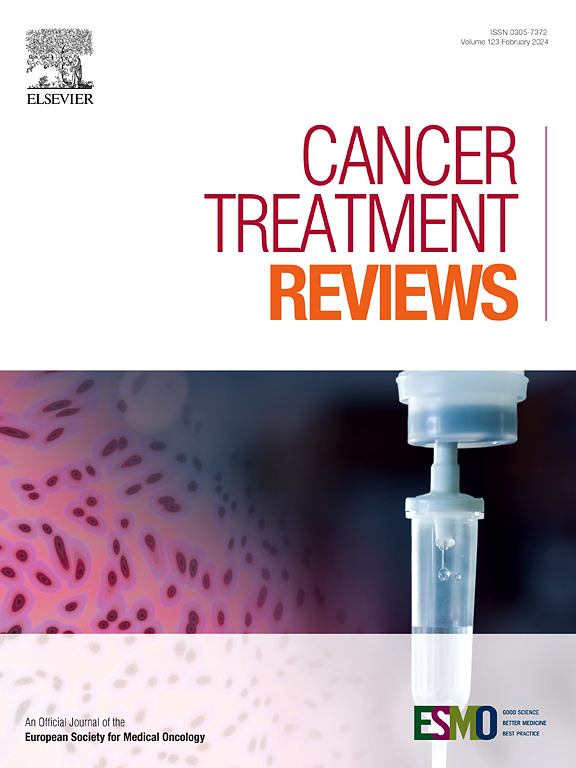Medical management of pancreatic cancer: from personalization to broadening treatment strategies
IF 9.6
1区 医学
Q1 ONCOLOGY
引用次数: 0
Abstract
Pancreatic ductal adenocarcinoma (PDAC) is one of the most heterogeneous and deadly cancers. This review examines recently implemented strategies to integrate predictive tools and targeted therapies to improve treatments personalization and patient outcomes. Predictive transcriptomic signatures based on machine learning should optimize first-line chemotherapy selection, while organoid-based chemo-profiling could help late-line or non-standard treatments, particularly when transcriptomic signatures are unavailable to guide therapeutic decisions. Liquid biopsies enable real-time, non-invasive monitoring of tumour progression and resistance. Targeted therapies, even limited to a small subset of PDAC patients, exploit specific molecular vulnerabilities and several of those are under clinical evaluation to join PDAC armamentarium. Given PDAC’s biological complexity, a multimodal approach combining predictive tools, functional testing, and molecularly-guided therapies is required to progress. Implementing those strategies in routine practice, combined with technological and clinical advances should enhance the precision, accessibility, and effectiveness of personalized PDAC treatment, as well as expand therapeutic options with new targets.
胰腺癌的医疗管理:从个性化到拓宽治疗策略
胰导管腺癌(Pancreatic ductal adencarcinoma, PDAC)是一种异质性和致死率最高的癌症。本文综述了最近实施的整合预测工具和靶向治疗的策略,以改善治疗的个性化和患者的预后。基于机器学习的预测性转录组特征可以优化一线化疗选择,而基于类器官的化学分析可以帮助晚期或非标准治疗,特别是当转录组特征无法指导治疗决策时。液体活检能够实时、无创地监测肿瘤进展和耐药性。靶向治疗,即使仅限于一小部分PDAC患者,利用特定的分子脆弱性,其中一些正在进行临床评估,以加入PDAC的行列。鉴于PDAC的生物学复杂性,需要一种结合预测工具、功能测试和分子引导治疗的多模式方法来取得进展。在常规实践中实施这些策略,结合技术和临床进步,将提高PDAC个性化治疗的准确性、可及性和有效性,并扩大新的治疗目标的治疗选择。
本文章由计算机程序翻译,如有差异,请以英文原文为准。
求助全文
约1分钟内获得全文
求助全文
来源期刊

Cancer treatment reviews
医学-肿瘤学
CiteScore
21.40
自引率
0.80%
发文量
109
审稿时长
13 days
期刊介绍:
Cancer Treatment Reviews
Journal Overview:
International journal focused on developments in cancer treatment research
Publishes state-of-the-art, authoritative reviews to keep clinicians and researchers informed
Regular Sections in Each Issue:
Comments on Controversy
Tumor Reviews
Anti-tumor Treatments
New Drugs
Complications of Treatment
General and Supportive Care
Laboratory/Clinic Interface
Submission and Editorial System:
Online submission and editorial system for Cancer Treatment Reviews
 求助内容:
求助内容: 应助结果提醒方式:
应助结果提醒方式:


